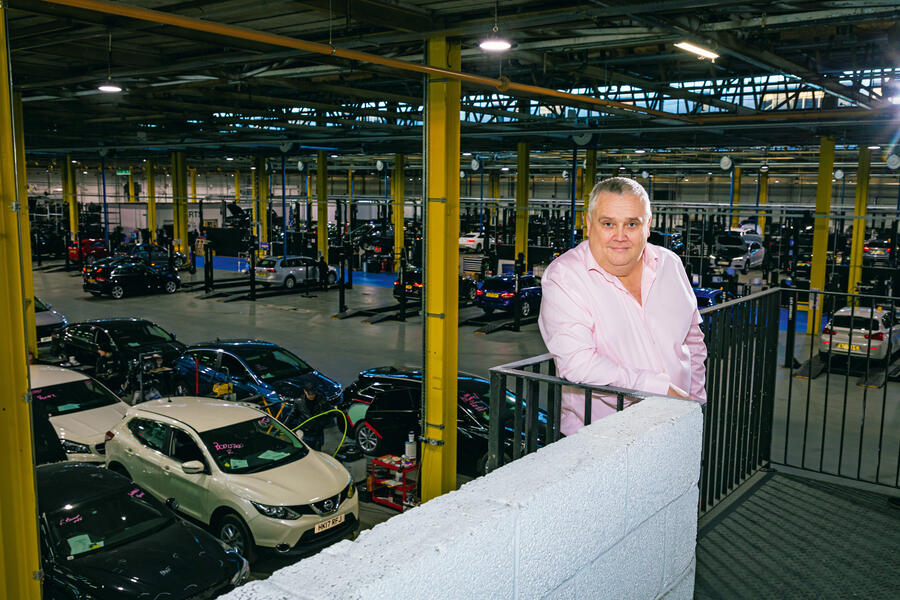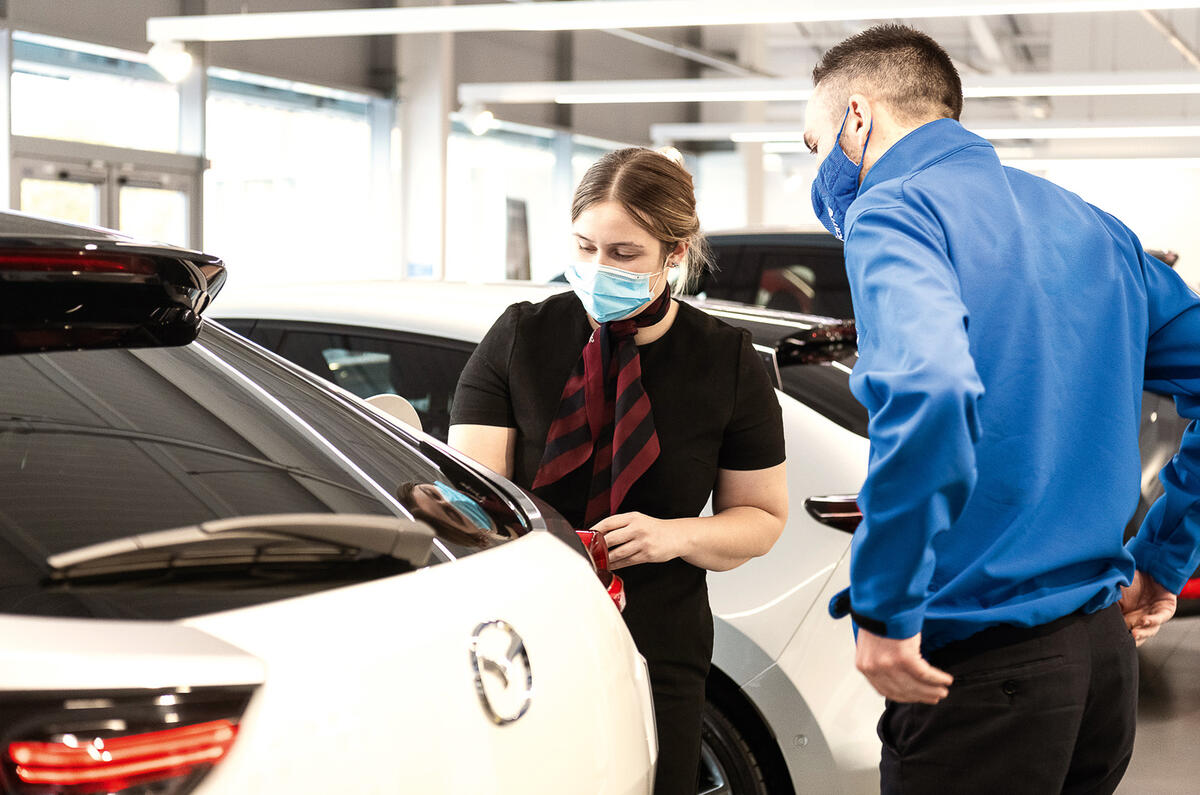I’ve just bought a nearly new car. Well, Mrs Evans has. A couple of things struck us on our tour of dealers.
The first was how, for all their claims regarding the quality of their cars and service, the reality at one dealer was a vehicle without a functioning sat-nav and media connection; at another, a car misdescribed to a shocking degree; and another, a warranty-claims limit of just £500.
Second was sales people’s refusal to negotiate on price. It’s a free market, but I for one expect something for signing on the dotted line – plus, I suspect, the screen price always favours the seller. As it was, we did eventually get a £250 discount on a car by pointing to a better-equipped example, albeit in a less attractive colour, down the road.
The experience reminded me that buying a car in 2021 is as stressful as it ever was. That said, it’s not stopping people shelling out. Dealer groups expect to make huge pre-tax profits this year: Lookers £81.4 million, Pendragon £70m, Vertu £65m and Marshall £50m. Motorpoint, a used car supermarket group, has reported profits up 30% to £13m in the first half of 2021. These are big increases on earlier forecasts and are a result of lengthening new car delivery delays, rising used car prices and buoyant consumer demand.
It sounds like a perfect storm in the best sense, but clouds are gathering. Changes in the relationship between dealers and manufacturers, the removal of tariffs from Japanese and Korean cars and the evolution of online retail – all these and more are poised to change the future of car buying. It was ever thus.
In recent decades, we’ve seen the arrival of approved used car schemes, personal contract purchase, used car supermarkets, online retailing… However, one thing has never changed: the car buyer. Transparency, fairness and respect are all we ask for. Whatever the future of car buying, if dealers can deliver these, they’ll sell cars. Here, four of them tell us what changes we can expect to see.
Peter Waddell: CEO, Big Motoring World and co-founder, Carzam
















Join the debate
Add your comment
It's very difficult to assess the long term change that internet buying, renting schemes and short term use payment models will have on the market, but it is certainly an unprecedented time for manufacturers to try and put a stake in the ground to reduce discounting, push up sales prices generally and get us all used to more expensive and innovative versioans of 'car ownership' or use.
I say unprecedented because: The pandemic has caused supply issues throughout the industry and as we all know when supply is limited prices rise. The pandemic has also limited access to dealer forecourts for many and pushed many new businesses towards internet retailing like Volvo, Tesla etc but also used retailers like Cazoo and Cinch etc. These models have vastly reduced fixed costs compared to the glass and concrete showrooms with lots of trained salespeople and technicians. Then, the imminent mass changeover to BEV's over ICE vehicles has had vearied effects on both manufacturers with requirements for large scale new investment and also on consumers who are undecided whether to stick with what they know or make that leap into a new technology which is likely to evolve rapidly over the next decade and could well render current technology obsolete..
As I say, therefore an ideal time to try and overhaul the whole selling/hiring process. However, I do not foresee it being easy to maintain any system based on fixed prices as there are so many variables and possible problems with this idea. Starting with the plethora of competing manufacturers, including shortly the big tech companies like Apple and Google, plus potentially millions of Chinese produced imports which will surely be at much lower prices than the European and US car plants can match. Massive dealer groups who deal with buying vast numbers of cars from different amnufacturers, plus the vagaries of incentives, used car retail sales, repairs and servicing, who will determine just as much as the manufacturers how pricing is managed. There are also generations of consumers who have grown up with the idea of not haggling prices of many things except for houses and cars who will determine whether the greater convenience of not having to haggle prices and having fixed monthly outlays is worth the inflated prices they will be paying.
All very interesting and it will continue to be so as the various competing factions work this out over the next few years.
I dont buy the whole "buyers dont like haggling" premise.
I ran dealerships for years and customers would drive miles to save an extra half percent, not caring a jot about local goodwill.
If we are saying that people are prepared to pay list price then either they have money to burn (statistics would suggest otherwise with cost of living rises), or they are just plain lazy.
Preventing dealers from discounting is Cartel behaviour, it is and always has been illegal.
The manufacturers have always over produced....to the tune of 30% globally. That is unlikely to change without huge factory shut downs an enorous job losses.....thats why there are such enormous discounts to be found at certain times of the year. Would you really be prepared to give up anything between £8 and £15k off the price of your next Audi/BMW/Mercedes-Benz?
Other than when there is a shortage of houses on the market people haggle like hell over asking prices of houses, so are we supposed to believe that they only feel uncomfortable doing this when buying a car? I think not.
The mobility service model so far is extortionately priced....little surprise then that this hasnt taken off. Few have £800+ to spend from their monthly income.
Without doubt the worst part of buying a new car is having to use local dealers who feel like they are stuck in the "Let me ask the manager" 1970's timewarp. On my latest new car they tried to sell me a £400 wax and polish as it would protect the paint and be worth more on a trade in. I replied that they quoted me a trade in price without even seeing my vehicle or asking me if I had the wax done when i bought mine.... They just smiled and didn't ask me anymore questions after that. Sooner we can get rid of them the better.